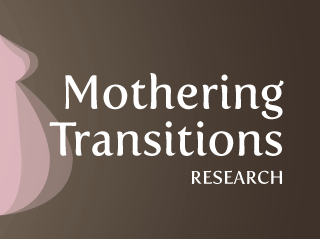Breastfeeding Peer Support Abstracts
A randomized controlled trial to evaluate the effect of telephone-based peer support on breastfeeding duration among primiparous women
Objective: To evaluate the effect of peer (mother-to-mother) support on breastfeeding duration among first-time breastfeeding mothers.
Method: Two hundred and fifty-six mothers were recruited from two semi-urban hospitals and randomly assigned to a control group (standard hospital and community care) or a peer support group (standard care plus telephone support, initiated within 48 hours of hospital discharge, from a mother experienced at breastfeeding who attended an 2.5 hour orientation session). Follow-up was conducted at 4, 8, and 12 weeks postpartum by a blinded research assistant on the following outcomes: breastfeeding duration, maternal satisfaction, and perceptions of peer support.
Results: Significantly more mothers in the peer support group continued to breastfeed at 3 months postpartum (OR = 2.11, 95% CI = 1.19-3.75) and all other time periods. Furthermore, significantly more mother in the peer support group were exclusively breastfeeding a 4 weeks (p = .05) and 12 weeks (p = .01). Significantly more mothers in the peer support group were satisfied with their infant feeding experience (p = .02). Eighty-one percent of participants who received the peer support intervention and completed the peer volunteer evaluation questionnaire (n = 130) were satisfied with their experience and 100% felt all new mothers should be offered telephone breastfeeding peer support.
Discussion: This psychosocial intervention was effective in increasing the proportion of mothers who continued to breastfeed until 3 months postpartum and who positively evaluated their breastfeeding experiences. The high satisfaction with and acceptance of the intervention indicates that breastfeeding peer support programs, in conjunction with professional health services, should be made readily available to first-time breastfeeding mothers.
Publications:
- Dennis, C-L, Hodnett, E., Gallop, R., & Chalmers, B. (2002). The effect of peer support on breastfeeding duration among primiparous women: A randomized controlled trial. Canadian Medical Association Journal, 166, 21-28. (link to pubmed)
- Dennis, C-L. (2002). Breastfeeding peer support: Maternal and peer volunteer perceptions from a randomized controlled trial. Birth, 29, 169-176. (link to pubmed)
- Dennis, C-L. (2003). Peer support within a health care context: Concept analysis. International Journal of Nursing Studies, 40, 321-332. (link to pubmed)
A pilot randomized controlled trial to evaluate the effect of a Baby-Friendly Hospital-Based Mothers’ Support Group, and a Cell-Phone Based Peer Support Program in Supporting Exclusive Breastfeeding in an Urban Kenyan Community
Objective: to evaluate whether participation from mid-pregnancy through 6 months postpartum in either a monthly peer-led mother-to-mother support group program or a bi-weekly cell phone based peer support groups program can increase adoption and duration of exclusive breastfeeding compared to the current standard of hospital based care among low-income women in urban Kenya. In this randomized controlled trial we will also assess whether uptake and participation in either of these interventions improves rates of (1) Fe-folate supplement use in pregnancy, (2) delivery in a health center, (3) delivery by a trained birth attendant, (4) maternal postpartum depression, and (v) home-based management of childhood illness. Participants will be women attending antenatal care at the Provincial General Hospital in Nakuru municipality, Kenya’s fourth largest conurbation (population ~ 300,000) located in Rift Valley Province.
Evaluation of a Breastfeeding Programme of Antenatal Peer Support in the Heart of Birmingham, UK
Objective: To assess the effectiveness of a community antenatal breastfeeding peer support worker (PSW) service on breastfeeding initiation.
Design: Cluster randomised controlled trial.
Setting: Community antenatal clinics in one Primary Care Trust (PCT) in Birmingham, UK in a multi-ethnic, deprived population.
Participants: 66 antenatal clinics including 2511 pregnant women: 33 clinics including 1140 women were randomized to have the PSW service and 33 clinics including 1371 women to standard care.
Intervention: An antenatal PSW service planned to comprise a minimum of two contacts with women to provide advice, information, and support, from 24/28 weeks gestation within the antenatal clinic and/or home. The trained PSWs were of similar ethnic and socio-demographic background to their clinic population.
Results: The sample was multi-ethnic, only 9.4% being White British, and 70% were in the lowest deprivation decile. Most of the PSW contacts took place in the antenatal clinics. Data on breastfeeding initiation was obtained for 2398 (95.5%) of 2511 women (1083/1140 intervention and 1315/1371 controls).There was no difference in breastfeeding initiation between groups, being 69.0% (747/1083) in the intervention and 68.1% (896/1315) in the control groups (cluster adjusted odds ratio (OR) 1.11, 95% CI 0.87 to 1.43, p=0.40). Ethnicity, parity, and mode of delivery all independently predicted breastfeeding initiation but randomisation to the PSW service did not.
Interpretation: A universal antenatal breastfeeding peer support service, provided substantially within antenatal clinics serving a multi-ethnic, deprived population, was ineffective in increasing initiation
Publications :
- MacArthur, C., Jolly, K., Ingram, L., Freemantle, N., Dennis, C-L., Hamburger, R., Brown, J., Chambers,J., & Khan, K. (2009). Antenatal peer support workers and breastfeeding initiation: a cluster randomized controlled trial. British Medical Journal, 338:b131, doi: 10.1136/bmj.b131
